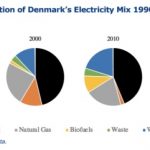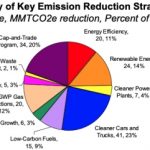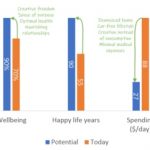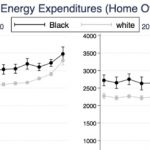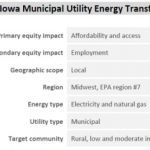On June 30th, EU Member States have to submit the final revision of their updated National Energy and Climate Plans (NECPs) to the European Commission. NECPs specify their climate and energy targets and trajectories up to 2030, with an outlook to 2040 and the longer term. NECPs must also feature the policies and measures planned to achieve these targets, as well as their funding needs and sources. But, as Federico Mascolo at CAN Europe explains, … [Read more...]
EU Elections 2024: the Green Deal can be an emblem of what Europe is for
It’s a European election year, which means all of us - not just the politicians and policy-makers – need to get our heads around what the EU is for. Sébastien Treyer at the IDDRI lays out the challenges faced in a moment of climate crises, war and high inflation, when voters are prone to polarisation and manipulation. He asks the difficult questions over economic security, inequalities between Member States, global influence, engagement with … [Read more...]
All estimates of the ‘cost’ of climate action should include the savings and benefits
Too many climate mitigation scenarios calculate the cost of that transition without measuring the savings and benefits, explain Alexandre Köberle and Joeri Rogelj at Imperial College London, Toon Vandyck at the EC's Joint Research Centre, and Celine Guivarch at the Centre International de Recherche sur l’Environnement et le Developpement, writing for Carbon Brief. This leads to a pessimistic view of the challenges ahead, and public aversion to … [Read more...]
End Fossil Fuel subsidies by shifting them to poorer households
In May, the environment ministers of the G7 agreed to end fossil fuel subsidies within this decade. Around $650 bn/year is spent worldwide on subsidising all energy sources, with the majority ($450bn) going to fossil fuels despite the climate crisis. But simply removing the subsidies has proven difficult. They keep energy costs low for consumers. It’s why public protest resisted the change in Ecuador and France in 2019. And developing nations … [Read more...]
What is making Denmark a decarbonisation success? Policy, society, geography
Denmark is proving itself to be a decarbonisation leader, happy to turn its back on its history of oil and gas production and heavy reliance on coal. Its ambitious goal of cutting GHG emissions by 70% by 2030 makes it a global policy frontrunner, second only to Finland which aims to be climate neutral by 2035. Thibault Menu references his report for IFRI that asks what makes Denmark special. It has a long tradition of providing stability and … [Read more...]
The dangers of using Climate Policy as a Social Justice tool
Cap-and-trade has been criticised in California for allowing big emitters to pay their way out of reducing emissions and cause pollution. It’s become a social justice issue as poorer communities tend to be located near where the pollution is being created. James Bushnell at the Energy Institute at Haas warns that such clashes are being caused by the mistaken view that climate policy should be a major tool for reducing inequality. In fact, some … [Read more...]
We need Behaviour Change and “Life Efficiency”, because efficiency gains and clean energy will never be enough
Behaviour change – reducing emissions by changing how we live our lives - should be part of every government and think tank’s sustainable scenario, explains Schalk Cloete. That’s because impressive advances in energy efficiency and clean energy won’t be enough to contain the emissions of a world continuing with the essential task of lifting billions of people out of poverty. But this should not be seen as a problem, says Cloete, because behaviour … [Read more...]
Do black households in the U.S. pay more for their energy?
The “Black Lives Matter” movement, sparked by the killing of George Floyd by Minneapolis police at the end of May, has reverberated around the world. Particularly in North America and Europe it has gone well beyond the behaviour of the police and prompted calls to identify and root out structural racism wherever it is found. Maximilian Auffhammer at the Energy Institute at Haas looks at U.S. research that asks: “Do black households spend more on … [Read more...]
A Just Transition can address systemic inequality, not just clean energy jobs
For some, the concept of a Just Transition means more than re-skilling former coal workers. It’s an opportunity to reduce systemic inequality in their society. Energy costs represent a high portion of the spending of the poor, so any major overhaul of the energy system, like the Transition, can have a direct and positive impact on them. Writing for the Regulatory Assistance Project (RAP), Alice Napoleon, Donna Brutkoski and Nancy Seidman describe … [Read more...]
Electricity pricing: shifting costs on to households that can afford it
Utilities need to invest in the future, and the Transition needs to be paid for by their customers. The less painful that is to each customer, the more publicly acceptable it will be. Maximilian Auffhammer at the Energy Institute at Haas explains how electricity pricing usually combines a fixed monthly charge with a block rate price (the charge for each additional unit of energy). Here he reviews a new report that scrutinises how different firms … [Read more...]






